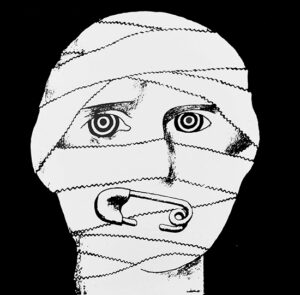The First Amendment protects free speech but not absolutely. It primarily limits government regulation of private speech, not speech restrictions by private entities or government limitations on its own speech. When the government does regulate speech, courts may uphold the restriction if it’s supported by significant governmental interest and appropriately tailored. Evaluating if a law aligns with the Free Speech Clause involves considering the type of speech, the context, and the government’s interest, with varying degrees of scrutiny depending on the case.


